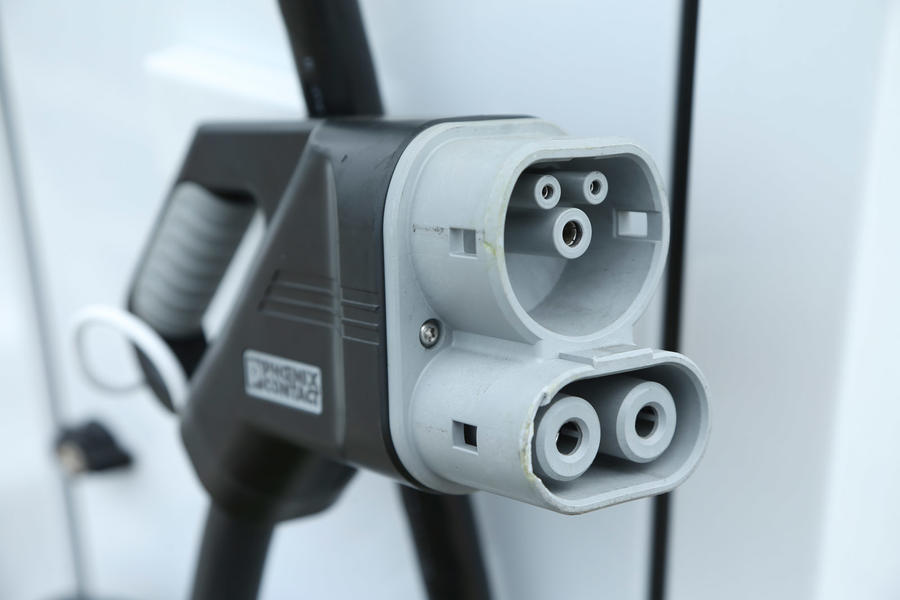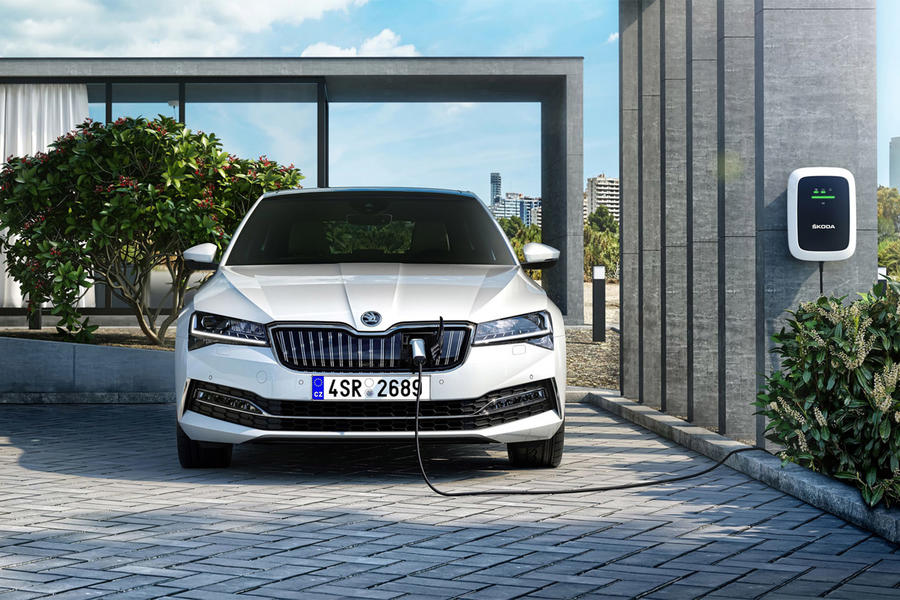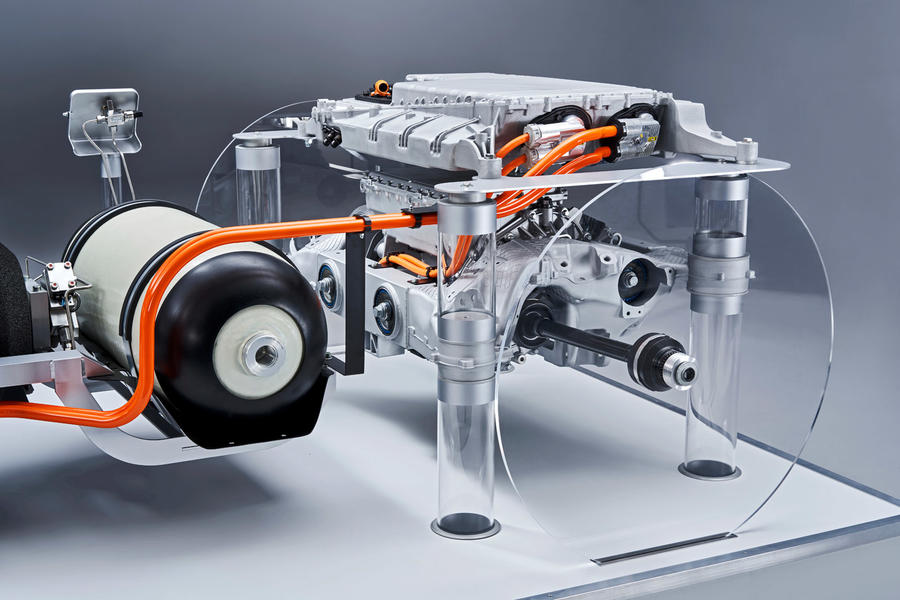EVs like these will soon become mainstream – but is the government’s heavy-handed ban the best way of achieving this?
Plans to ban non-electric cars are unrealistic and potentially damaging. We give our view and show you how to give yours
Earlier this year, the UK government announced that it was considering bringing a planned ban on sales of new petrol and diesel cars and vans forward from 2040 to 2035 – or maybe even earlier – and extending it to include hybrids and plug-in hybrids. As part of the process, the Department for Transport and Office for Low Emission Vehicles launched a public consultation to find out what the public thinks of its proposals.
The consultation asks for views on:
The phase-out date.
The definition of what should be phased out.
Barriers to achieving the above proposals.
The impact of these ambitions on different sectors of industry and society.
What measures are required by government and others to achieve the earlier phase-out date.
This is a hugely significant and important decision, and we at Autocar felt it was vital to make sure that our voice – and yours – is heard. Below, therefore, is our response to the consultation, which we have submitted to OLEV. We urge you to do the same.
Autocar’s view
Let’s make one thing clear: Autocar supports the electrification of the UK car parc as quickly as is practicable, both as a way of cutting toxic emissions in our cities and of eliminating the CO2 output of British cars and vans, a contributor to global warming. For years it has been clear to us – as we believe it also has been to all global car makers – that these are dominant, desirable outcomes.
However, the proposed ban on sales of all internal-combustion-engine (ICE) cars and vans by 2035, and possibly 2032, strikes us as a close-to-unworkable way of achieving laudable aims.

It’s almost guaranteed to do irrevocable harm to a British car industry that was once the darling of politicians but has been successively battered by the Great Recession, Brexit uncertainties and now the effects of the Covid-19 pandemic. We believe a realistic examination of the effects of the proposed ban must generate a change of emphasis.
Our contention is that:
A ban on volume-produced ICE-only cars and vans is right in nearly all cases, but there must be exclusions to protect our unique specialist and low-volume car industries.
However, the ban shouldn’t extend to plug-in hybrids – at least until pure EVs prove their suitability for all current car and van users – because they will remain essential for long-range drivers.
The authorities should set standards, not enforce specific solutions in a case like this.
Despite Brexit, all limitations must be introduced in close co-operation with nearby large car markets (Germany, France, Italy and Spain) to allow vital economies of scale.
Any ban should be introduced no sooner than 2038 – three full car model generations ahead.
A government minister with special responsibility in these important areas should be either appointed or deployed forthwith.
It’s well known that car companies need to plan models and production facilities two decades ahead and to commit to new models 12-15 years out. To allow them only 12 years for an almost total revision of planning and technology seems certain to cause both serious industrial upheaval and a late-2020s-onwards collapse in new car sales in favour of raging demand for nearly new ICE and hybrid vehicles. The ban must be sensitively ‘sold’ and implemented to avoid threatened market upheaval, and once made, decisions must be adhered to.

Arguably, 2032-35 also provides insufficient time to win over a public still sceptical about electric vehicles – largely following governmental failure to expand or organise EV charging infrastructure.
Expecting a market that currently buys 2.5% electric cars to move to 100% in a dozen years while easier options continue to be available strikes us as unrealistic. Especially when existing EV incentives penalise hybrids, which more imaginative eyes might see as contributing powerfully to lowered pollution levels now while serving as useful stepping stones to full-EV adoption.
Autocar’s great concern is that companies will be driven into deep unprofitability, an extremely undesirable situation when manufacturers – and their key suppliers – must be enthusiastically encouraged to stay in the UK (providing jobs) while investing in new models, processes and suppliers with unprecedented speed.
Our proposal
Our proposal for the years ahead would run like this:
Decide on a 2038 ICE-only ban for all but low-volume manufacturers and make it stick so that car makers can, for the next 18 years, depend on it for planning purposes.
Heavily incentivise EV ownership, in the style of Norway, as a way of dramatically boosting demand.
Reverse current policy so as to encourage the development and use of petrol-assisted plug-in hybrids, which will be vital both for long-range drivers and to provide others with a palatable step into full EVs, as well as making a major contribution to lowering pollution levels now.
Fulfil legislators’ frequent promises to expand and improve EV charging infrastructure by organising the commercial aspects of the coverage, rather than allowing a market free-for-all.
Take special control of motorway EV charging – probably the biggest priority for an EV future.
Ruthlessly deter the use of old and high-polluting petrol and diesel cars and vans everywhere, but…
Avoid pejorative curbs of Euro 4-onwards petrol and Euro 6-onwards diesel cars, so as to give lower-income motorists hope of maintaining affordable mobility in comparatively clean cars.
Ensure that local council rules applying to car use are uniform so that owners can travel freely to new places without risking unknown infringements based on vehicle type.
Drastically improve growth incentives for the hydrogen industry to provide clean propulsion for the British trucks and buses that remain major polluters and will need this technology in future.
Drastically improve the tone and quality of political rhetoric so the car industry once again believes its value to the UK’s economy is understood. ‘Sell’ the new system to the public, giving car owners plenty of time to understand and get used to it.
Protect our unique small-series-car industry and motorsport industry, which are major contributors to employment and export. Companies will need continuing freedom to manufacture and test cars for markets without bans.
Avoid knee-jerk curbs on classic car ownership, thereby supporting an industry that generates many jobs and big money yet, because of owners’ low mileages, creates negligible measurable pollution.
Our conclusion
Naturally, there’s even more to do. No ban should appear until there has been a thorough and impartial assessment of the oil industry’s recent, game-changing plan to introduce low-carbon fuels in two stages. Perhaps as a result, the ICE ban can be introduced more slowly to do even less harm to the UK automotive industry.
Two last things: we must consider the capability of the power grid to cope with the coming exponential demand for car power and must take much more care about the sourcing and recycling of EV batteries.

Estimates of the effects of an EV-only car parc on the UK power grid vary from “it’s no problem” to “it will be cataclysmic”. A government that expects the public to support – and pay for – the huge changes ahead owes them clear information about how the power will be provided.
On batteries, more than 70% begin life in China, often depending on energy-intense processes supported by that country’s coal-fired power stations. New, clean sources must rapidly be approved and financed, just as battery recycling must grow in scale and sophistication. It’s not enough to talk of second lives for batteries in remote wind-farm storage facilities. After a time even these batteries will end their lives: currently in landfill, most of them.
Despite concerns, we at Autocar enthusiastically welcome the electric age. We love clean air. We want to address climate change. We know that fantastic EVs can be built already. But we believe that UK laws aimed at promoting the new era must be more imaginative and more sensitive. The adoption of more reasonable and realistic legislation in 2038 should be the start.
Have your say
The deadline for submissions to OLEV is Friday 31 July, and they must be emailed to communications@olev.gov.uk or sent to Consultation Response, Office for Low Emission Vehicles, Zones 3/29-33, 33 Horseferry Road, London, SW1 4DR. We would love to read your responses as well so that we can outline the views of our readers in a future issue. If you would like to contribute, email yours to autocar@haymarket.com.
READ MORE
Petrol and diesel car sales ban could come in 2032
Special report: Covid-19 and the future of the UK car industry
Government body calls for car tax hike to help cut emissions
Source: Autocar
